
Business Trends in the New Normal
Adding data to the perceptions
Covid-19 has changed every aspect of our lives and is shaping the business environment with emerging trends that will define a new normal. Let’s explore what has changed and what the future might hold using data
May, 2020

By Carlos Duran
The outbreak
The coronavirus outbreak that originated in China in December last year spread rapidly to all corners of the world. It is causing not only the loss of thousands of human lives but also devastating economic impacts. Emerging business trends are defining a “new normal.”
The COVID-19 pandemic has made apparent that, whether we like it or not, we are living in a globalized world. The actions happening in certain parts of the planet have the potential of impacting the whole world in many different ways.
This unprecedented event is testing the capacity of societies around the globe to solve a truly global problem, and it is also exposing the weaknesses of a way of living that we took for granted. The pandemic is teaching many lessons that will shape what many commentators are calling the “new normal.”
How does this new “normal” look like? It is still difficult to predict at this point as the situation is evolving. However, we are starting to have data available that is helping us differentiate between facts and perceptions, and it is giving us some clues about what the future might hold.
The scenarios
There are different scenarios that we can expect. In an optimistic one, a vaccine will be available relatively quickly (between 12 – 18 months). In a more pessimistic scenario, a vaccine won’t be available for quite a long time. In that case, the measures that adopted to fight the pandemic, like social distancing and tighter borders, will remain in place for a longer time, and new crises will pop up in different parts of the world. In the latter scenario, the potential long-term consequences would be far more severe.
Our point of view is that it will be something in between, but regardless of what scenario will materialize, one thing is sure: organizations will have to change. The degree of change that companies should introduce into their strategies and operations will largely depend on the particular situation of each organization and its environment that we still don’t see stabilize. However, data collected after a few months into the pandemic is starting to shed some light on key emerging trends that will shape the future. In this article, we’ll analyze some of these trends based on data provided by Statista.
The evidence gathered so far indicates that some key trends like the ability to work from home, buy online and provide remote services like telemedicine, and the possibility of automating processes to minimize human intervention are here to stay. A new business reality where human contact is minimized doesn’t mean that it will be eliminated.
For some activities, it will still be necessary to have physical interaction either because of the nature of the service or because the required technology is not available. Let’s explore the most important trends emerging from the pandemic.
Emerging trends
Remote Work
As a direct effect of the lockdown, companies started implementing home office practices. In the charts below, we can see the exponential growth in the number of users of popular workplace apps, and the sharp increase of share price value, which confirms the trend.
“Remote work is here to stay”
Is working from home going to be part of the new normal once the pandemic is over? Or, will we come back to pre-pandemic practices?
A study conducted in Australia, Canada, UK, and the USA between January and February 2020, before the Coronavirus became a pandemic, shows that a large proportion of the workforce, to some extent, was already working from home.
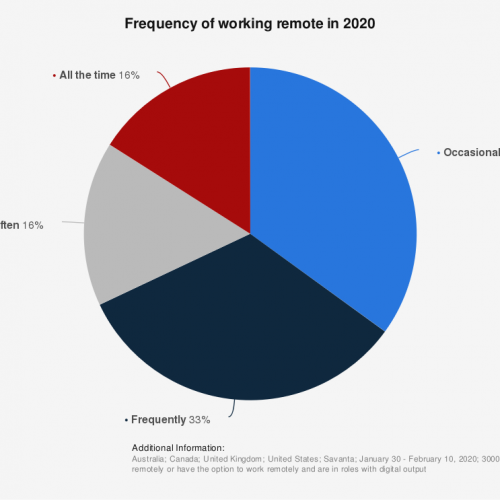
A recent survey conducted in the USA shows that a large proportion of employees will prefer to continue working from home. This data suggests that home working will continue after the pandemic is over.

Some industries seem to be better suited for remote working. Another recent survey from Statista indicates that Software and IT, Finance, and Media and Communications are among the industries that are better geared to remote working as per the data shown below.
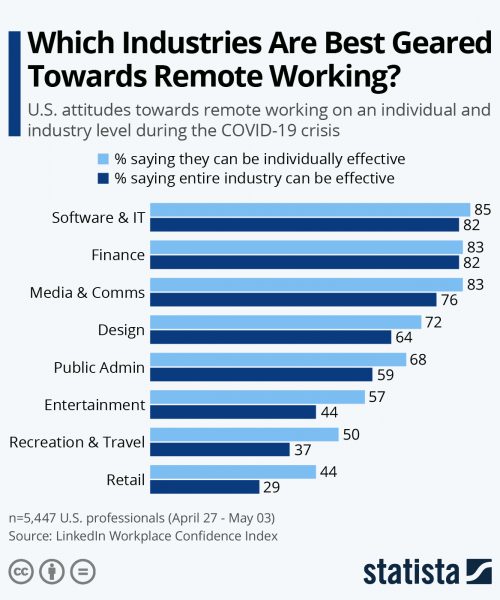
Telemedicine
Stay at home orders, and social distancing measures have forced service providers to seek for alternative ways to provide health services for non-urgent matters that don’t require physical interaction with patients. In this regard, we have seen a surge in telemedicine practices in various countries around the world. Anecdotal information suggests that this new way of delivering services is proving to be a very cost-effective and safe method.
A report from Global Market Insights indicates that the market size will experience a dramatic growth from 45.5 billion USD in 2019 to 175.5 billion USD in 2026.
With lockdown and social distance measures in place for a longer time, this trend will most likely increase. Given the benefits reported with the experiments that are running during the pandemic, and taking into account the enormous market potential, we can expect that telemedicine will be a big player in the new normal.
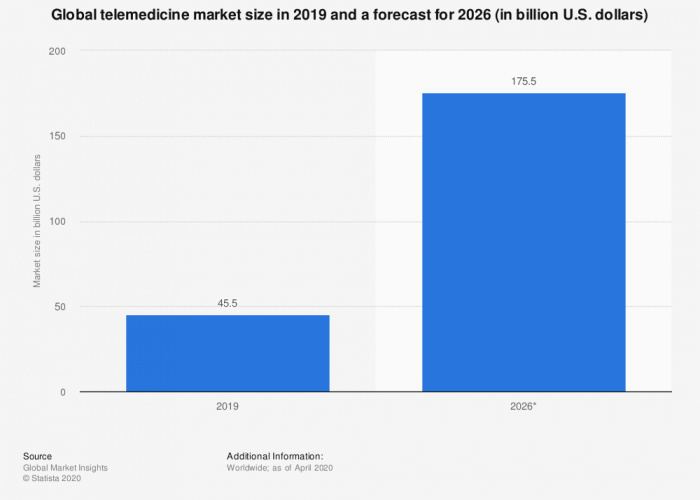
The Coronavirus has caused a 9% increase in traffic-related to health and medicine e-commerce as a direct result of lockdown measures, as indicated in the chart below.
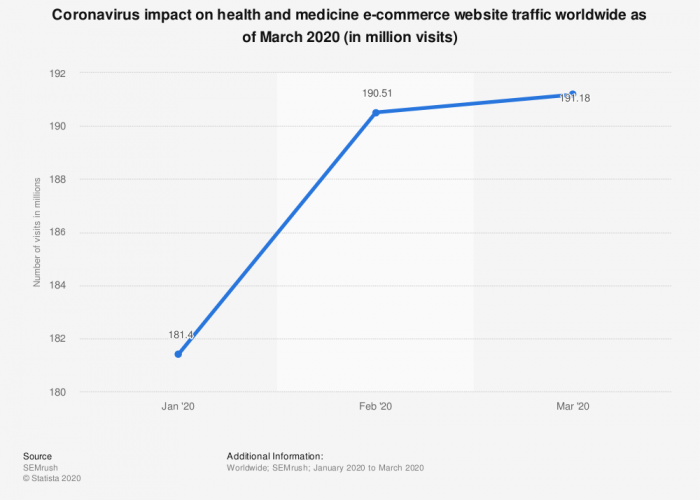
Remote Education
The COVID-19 pandemic has had an enormous impact on Education around the Globe. According to UNESCO data, around 1.4 billion students were directly impacted.

Distance learning has been showing a slow but steady increase in the USA before the pandemic, as per the chart below.

As lockdown measures impacted students at all levels, schools and universities have shifted to deliver classes online.
Even though it is too early to ascertain if remote learning will continue increasing the rate of growth, as a minimum, we could expect the emergence of hybrid models.
Digital and Contactless Payment
Digital and contactless payments have become the default payment method during the pandemic in many countries around the globe. According to a report published by Statista, digital, and contactless payment methods would increase by 2024.
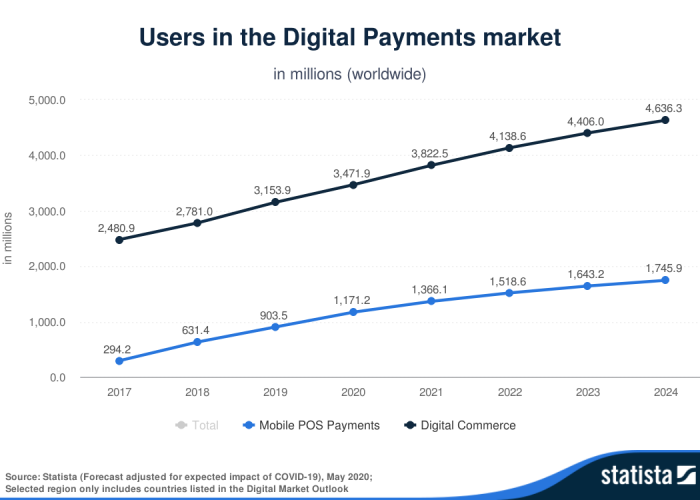
Different countries, however, show a varying degree of maturity using digital payments. China is the country that shows the highest growth rates, as indicated in the chart below.
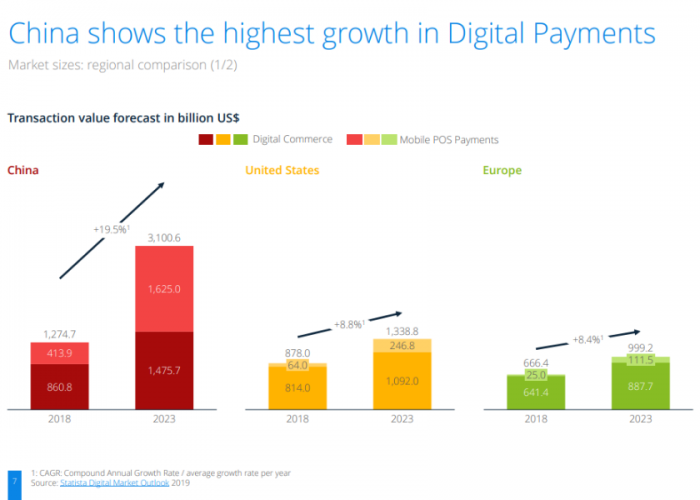
Business implications
The key trends that are emerging as a consequence of COVD-19 will have a profound impact on the business environment.
Organizations need to understand and make sense of the new environment, make strategic decisions, and adapt themselves to the unique situation revisiting their structures, processes, products, and services to be relevant in a new reality.
Other essential changes triggered by the pandemic must also be considered. Among additional critical transformations, it is worth mentioning: the re-design of supply chains, changes in consumer preferences, incorporation of resilience into strategies and operations, acceleration of the use of data and technology, and environmental and social considerations.
All of the above will require the organizations to review their strategies as a first step to adapt and transform themselves.
In a follow-up article, we’ll present our point of view about what business can do to navigate the pandemic and prepare to be successful in what appears to be a “new world.”


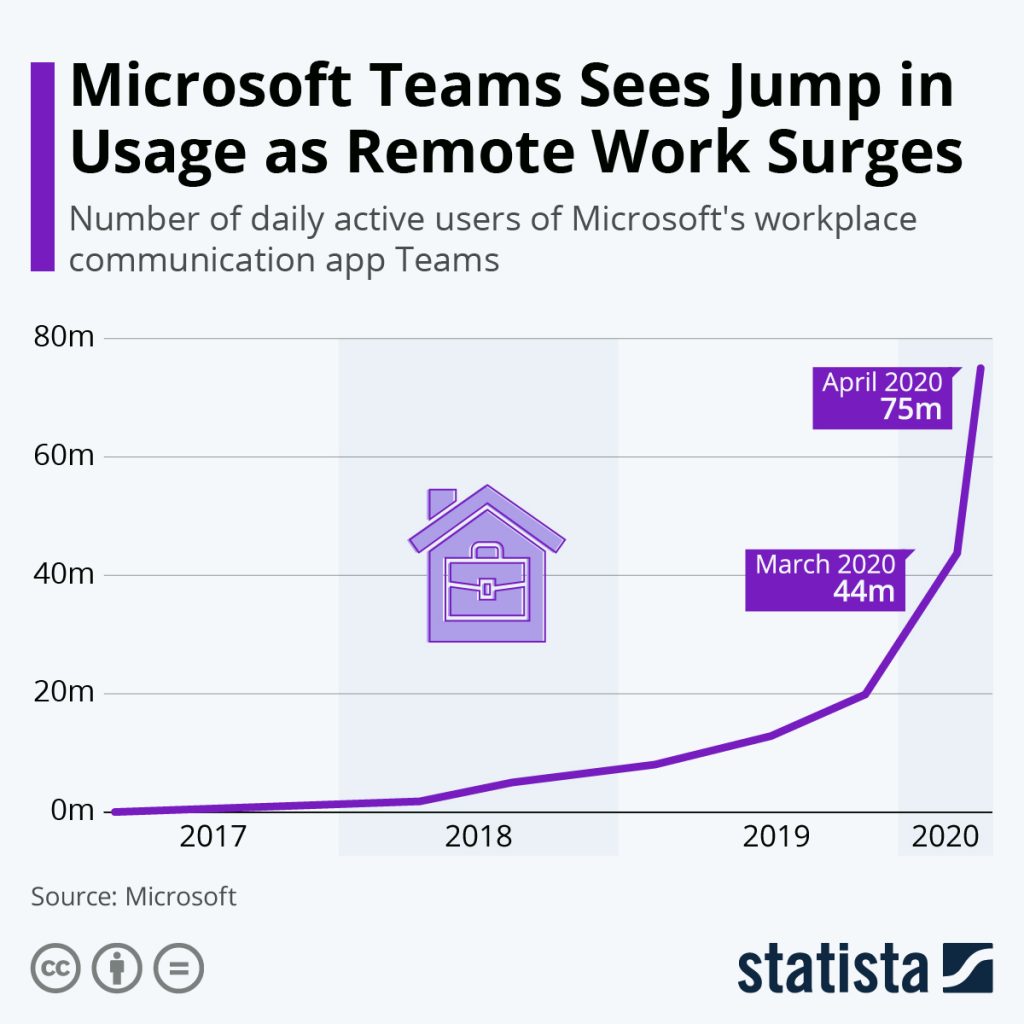
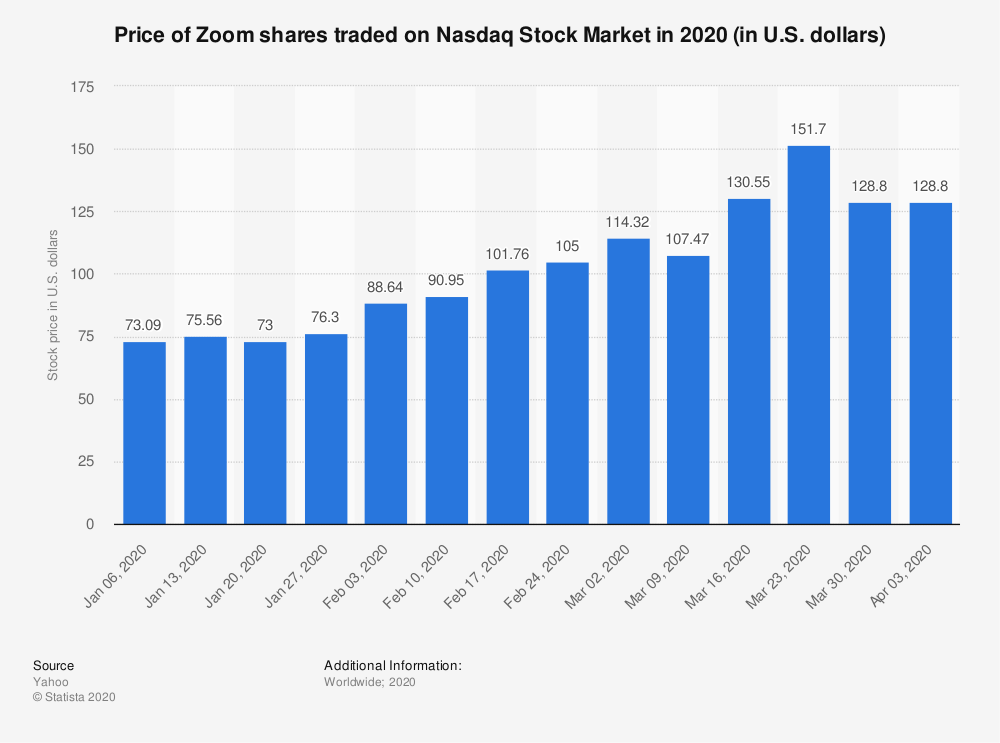

Pingback: Digital Transformation: make or break | ALG Consulting International